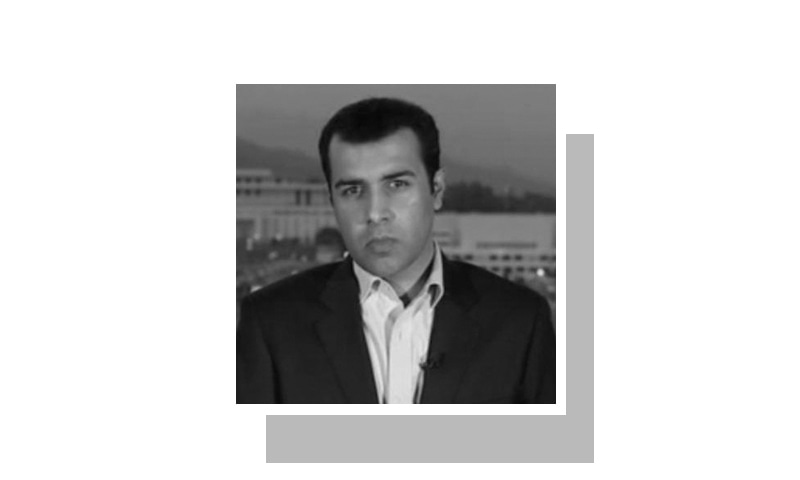SURVEY Pakistani television news channels, and one still routinely hears omnipotence and omniscience ascribed to the United States. In the background, we are told, there are powerful American officials discreetly manipulating events to their strategic satisfaction, in Pakistan and beyond.
The latest iteration of this conspiracy theory came in the wake of Narendra Modi’s surprise visit to Lahore. Western pressure had been decisive in forcing India to resume talks with Pakistan, more than one television analyst claimed — without furnishing any proof.
It is true that Washington’s influence was keenly felt in Pakistan, once upon a time. When Gen Pervez Musharraf’s one-man rule was floundering, US officials stepped in to try and stave off its collapse. The Bush administration feared losing one of its much-vaunted ‘frontline’ allies in the war on terror.
Washington’s influence is receding — globally.
But since 2011, the annus horribilis of US-Pakistan relations, Washington’s influence has been in sharp decline. It is hard to think of any measure the US has been able to push through in terms of Pakistan without meeting resistance, including matters as perfunctory as visas for embassy employees.
There are a few reasons for this. Despite what many Pakistanis believe, the region is no longer important to the US. The war in Afghanistan, deeply unpopular at home, scarcely figures on the list of Washington’s priorities. The Obama administration is merely hoping for the least worst of all possible outcomes.
Terrorism remains a threat, and in some ways a bigger threat than it has been in recent years. But that is down to the militant Islamic State group, and the alarming spread of its murderous ways across the Middle East and in terms of the adherents it has won in the West. ‘Af-Pak’ is no longer the central front in the war on terror, and Pakistan is no longer ‘the world’s most dangerous country’.
At the same time, Washington’s influence is receding — globally. Western anxieties about ‘decline’ have been around since Oswald Spengler’s famous volume on the topic, published in 1918. “Civilisation’s going to pieces,” bewailed Tom Buchanan, the vulgar Yalie character in F. Scott Fitzgerald’s 1925 novel, The Great Gatsby. “I’ve gotten to be a terrible pessimist about things.”
Since then, every decade or so, more sophisticated thinkers have written of US decline. There was a great period of panic between 1945 and 1970 as the US share of the world economy returned to pre-war proportions. Writers as various as Immanuel Wallerstein, Robert Keohane, and Paul Kennedy prematurely predicted the fall of US power.
But the US’s two-decade-long unipolar moment has now likely come to an end. Whether the US decline is under way is still a subject of much debate, as Joseph Nye lays out in a recent book, but it is indisputable that American influence has diminished, while there’s been what Fareed Zakaria terms “the rise of the rest”.
The clearest evidence of this is the current Saudi-Iranian dispute. While Tehran and Riyadh try and carve up the Middle East between themselves — quite literally in the case of some countries — Washington is powerless to restrain either side.
The Saudis blame the Americans for signing last year’s nuclear deal with Iran and dithering over Syria. The Iranians, especially the hardliners, remain suspicious of the US, taking note of its massive arms sales to the carbon-rich monarchies that fringe the Persian Gulf. Benjamin Netanyahu, meanwhile, seems to trust King Salman more than he does Barack Obama.
As the US’s clout contracts, regional alliances are forming independently. The most notable is the Saudi-led coalition waging a ruinous war in Yemen. Last November, Prince Mohammed — the barely 30-year-old dauphin who has accumulated three titles since his father’s ascent to the throne — enlarged the coalition to 34 states, some presumed so loyal as to not merit notice of their inclusion.
To confirm Pakistan’s place in the coalition, Riyadh dispatched its foreign minister to Islamabad this week. But Saudi Arabia’s domestic economic woes severely constrain its ability to offer inducements, while the risks of inviting the Middle East’s sectarian-tinged flames to South Asia are incalculable.
Strikingly, the so-called ‘Islamic coalition’ excludes any Shia-led countries. No Lebanon, no Iraq, no Syria, and certainly no Iran. As the Gulf states’ decisions — to divert fighter jets from Syria to Yemen, and sever or downgrade diplomatic relations with Tehran — show, they are more concerned about Iranian influence than IS.
For Pakistan, this means that its traditional allies, the US and Saudi Arabia, are not just no longer on the same page, but they have other, more pressing concerns than the stability of the Muslim world’s second most populous country and sole nuclear power.
Perhaps this loss of a sense of indispensability will prompt Pakistan to think of its own challenges without the easy option of turning to a powerful ally for a bailout — or to blame for its problems.
The writer is a journalist.
Published in Dawn, January 10th, 2016













































